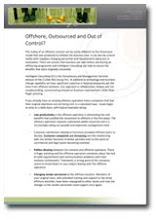
Two years after the recession officially ended and we’re still in the golden days of recovery. In Q1 2015, 73.5% of 16 – 64 year-olds in the UK were in work.
But it seems the most dramatic growth is yet to come; a recent report from Cityam.com has predicted that London’s employment levels, thanks mostly to the Finance and Technology sectors, are set to rise for another decade.
Most of this growth will be concentrated in the capital’s financial district. Otherwise known as ‘The Square Mile’, this area will accommodate an additional 39,000 workers in the next ten years. That’s just below 30% of the 145,000 new workers whom London is now expecting.
Unfortunately, London’s eyes may prove to have been a little bigger than its belly. This growth is creating problems for London’s workers and headaches for its economists. The jobs (and therefore the population) are growing at such a rate that the strain on infrastructure is becoming huge. One major problem, for instance, is the inevitable growth in demand for public transport, which is likely to increase by more than 50%. This saturation of workers and their families could prove to be too much, even for the City. Think of rush hour!
But there are also things standing in the way of this prediction which, although problematic, may delay the influx of people. The most obvious is unaffordable housing and a lack of skilled employees. Commenting on the skills shortage, Adzuna co-founder Andrew Hunter said "the recovery certainly has the capacity to progress further and faster, but at the moment there’s a disconnection between our abilities and our economic climate. It’s like standing outside your recently fixed up car, tuned up and ready to go, only to realise you’ve lost the keys.”
Not only do we lack skill sets at high levels, we are also now expecting to lose a lot of lower level jobs as automation continues to take over. Big data requires more and more technical capacity and has room for less and less human error. As machines can do jobs faster, with more accuracy and without taking holidays, this poses the question; what will happen to London’s lower-skilled workers? While the number of jobs is rising, many can only be filled by highly skilled workers (statisticians, financial professionals and big data analysts), leaving those without major qualifications treading water in the most expensive city in the UK.
According to London Enterprise Panel, 49% of workers will consider leaving London if housing costs continue to rise, but do they have to? Should they? If the technical skills shortage is successfully tackled, studies have also shown that 80% of London’s tech companies say they could grow quicker if this is addressed. This would offer more opportunities at a variety of levels, and take another baby step towards a future in which there’s something for everyone.







No comments:
Post a Comment